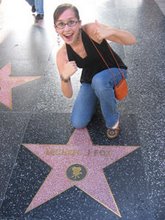Against a pastiche of manicured lawns and devotional religious artwork, beautiful people with incredibly refined accents smoke hand-rolled cigarettes and steal illicit kisses in shadowy alcoves. Julian Jarrold's Brideshead Revisited is the ambitious and flawed story of three young people coming to terms with reality surrounded by mid-century interwar decadence.
As a first-year at Oxford, middle-class Charles Ryder (Matthew Goode) is drawn to the lifestyle and companionship of the foppish Lord Sebastian Flyte (Ben Whishaw), who takes a shine to him in turn. Sebastian is a fairly straightforward character, tortured by alcoholism, deeply conscious of his inadequacy in his mother's eyes, and fond of his stuffed bear Aloysius. When Charles visits Sebastian's home, the vast estate of Brideshead, he is intoxicated as much by the luxury and beauty as by the copious amounts of wine he and Sebastian guzzle. It's Pemberley Syndrome. Charles loves Sebastian, but they both know he will never return the romantic attraction Sebastian displays toward him. That doesn't make it sting any less when Sebastian catches his sister, the Louise Brooks-styled ingenue Julia (Hayley Atwell) kissing Charles.
Meanwhile (for there's always a "meanwhile"), the family matriarch Lady Marchmain (Emma Thompson) has ingrained herself in every aspect of her children's lives, as well as Charles'. Herein lies the story's major conflict. While Brideshead Revisited spans continents and years, and touches upon the subjects of class relations, terminal illness, war, infidelity, and filial piety, it is really nothing more than an illustration of Catholic guilt. According to Evelyn Waugh, the author of the novel on which the film is based, it is about "what is theologically termed 'the operation of Grace', that is to say, the unmerited and unilateral act of love by which God continually calls souls to Himself."† While both the novel and the film are told from Charles' perspective (though I've yet to read the novel, myself), the film takes a particularly unilateral view of events, and so favors Charles' staunch atheism over the Catholic persuasion of the family with which he has become entwined.
The film seemed as if it were perpetually on the edge of being a grand, sweeping epic, but there was really never any tension or drama beyond personal decisions or discussions of what it means to be a Catholic (pre- Vatican II, of course). I suppose this is fitting, given that the individual's relationship with faith can be considered the weightiest of all, but it gave the film a strangely unbalanced feeling. The impact of the characters' choices on others was deemphasized, the significance instead being placed on their adherence to the rules of Catholicism (personified by Lady Marchmain).
Waugh wrote the novel in 1945, so the setting of the film as a period piece is true to the source material. I would also imagine that the impact of the wars on the characters is more explicit in his version than in Jarrold's. But, I could easily have imagined the same story playing out in the early '80s in an urban setting, or a small film set in modern day. Of course, the structure of the bicurious love triangle is nothing new lately, so maybe that's why I'm getting that feeling. Or, it could have been the occasional use of shaky handheld camerawork, which is a trope of more modern cinema, and was literally jarring in the glossy and dated setting.
It was a decent watch, but unless you're a devotee of Emma Thompson (understandable), or enamored of Matthew Goode (very understandable), I'd reccomend renting Atonement instead. Better yet, I'd reccomend reading Ian McEwan's novel, Atonement, which should be required for anyone with an interest in the written word. I'll say it again: what McEwan is able to do with language, about language, is inspirational.
† Quotation taken from Wikipedia, so take that for what it's worth.
Subscribe to:
Post Comments (Atom)




1 comment:
The Dendy at Circular Quay is the perfect place to see this movie! The waiting lobby, with its' dark soft lounges and dim lit environment makes you feel as if you are in a mid-20th Century movie house when waiting to be called for your theater!
Post a Comment